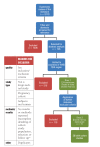Systematic review of birth cohort studies in Africa
- PMID: 23198102
- PMCID: PMC3484737
Systematic review of birth cohort studies in Africa
Abstract
Aim: In sub-Saharan Africa, unacceptably high rates of mortality amongst women and children continue to persist. The emergence of research employing new genomic technologies is advancing knowledge on cause of disease. This review aims to identify birth cohort studies conducted in sub-Saharan Africa and to consider their suitability as a platform to support genetic epidemiological studies.
Methods: A systematic literature review was conducted to identify birth cohort studies in sub-Saharan Africa across the following databases: MEDLINE, EMBASE, AFRO and OpenSIGLE. A total of 8110 papers were retrieved. Application of inclusion/exclusion criteria retained only 189 papers, of which 71 met minimum quality criteria and were retained for full text analysis.
Results: The search revealed 28 birth cohorts: 14 of which collected biological data, 10 collected blood samples and only one study collected DNA for storage. These studies face many methodological challenges: notably, high rates of attrition and lack of funding for several rounds of study follow up. Population-based 'biobanks' have emerged as a major approach to harness genomic technologies in health research and yet the sub-Saharan African region still awaits large scale birth cohort biobanks collecting DNA and associated health and lifestyle data.
Conclusion: Investment in this field, together with related endeavours to foster and develop research capacity for these studies, may lead to an improved understanding of the determinants of intrauterine growth and development, birth outcomes such as prematurity and low birth weight, the links between maternal and infant health, survival of infectious diseases in the first years of life, and response to vaccines and antibiotic treatment.
Figures



Similar articles
-
Complications associated with adolescent childbearing in Sub-Saharan Africa: A systematic literature review and meta-analysis.PLoS One. 2018 Sep 26;13(9):e0204327. doi: 10.1371/journal.pone.0204327. eCollection 2018. PLoS One. 2018. PMID: 30256821 Free PMC article.
-
Population-based rates, timing, and causes of maternal deaths, stillbirths, and neonatal deaths in south Asia and sub-Saharan Africa: a multi-country prospective cohort study.Lancet Glob Health. 2018 Dec;6(12):e1297-e1308. doi: 10.1016/S2214-109X(18)30385-1. Epub 2018 Oct 22. Lancet Glob Health. 2018. PMID: 30361107 Free PMC article.
-
Barriers to childhood immunization in sub-Saharan Africa: A systematic review.BMC Public Health. 2020 Jul 14;20(1):1108. doi: 10.1186/s12889-020-09169-4. BMC Public Health. 2020. PMID: 32664849 Free PMC article.
-
Beyond the black stump: rapid reviews of health research issues affecting regional, rural and remote Australia.Med J Aust. 2020 Dec;213 Suppl 11:S3-S32.e1. doi: 10.5694/mja2.50881. Med J Aust. 2020. PMID: 33314144
-
The future of Cochrane Neonatal.Early Hum Dev. 2020 Nov;150:105191. doi: 10.1016/j.earlhumdev.2020.105191. Epub 2020 Sep 12. Early Hum Dev. 2020. PMID: 33036834
Cited by
-
Measuring extended families over time in informal settlements in Nairobi, Kenya: Retention and data consistency in a two-round survey.Demogr Res. 2018 Jan-Jun;38:1339-1358. doi: 10.4054/DemRes.2018.38.44. Epub 2018 Apr 17. Demogr Res. 2018. PMID: 29706796 Free PMC article.
-
Birth cohort studies using symptom diaries for assessing respiratory diseases-a scoping review.PLoS One. 2022 Feb 10;17(2):e0263559. doi: 10.1371/journal.pone.0263559. eCollection 2022. PLoS One. 2022. PMID: 35143524 Free PMC article.
-
Birth Cohort Studies are Necessary to Understand the Epidemiology and Nature of Non-Communicable Diseases in Africa.Ethiop J Health Sci. 2024 Sep;34(5):350. doi: 10.4314/ejhs.v34i5.1. Ethiop J Health Sci. 2024. PMID: 39944384 Free PMC article. No abstract available.
-
Developing biobanks in developing countries.J Glob Health. 2011 Jun;1(1):2-4. J Glob Health. 2011. PMID: 23198094 Free PMC article.
-
Intrauterine Exposures and Maternal Health Status during Pregnancy in Relation to Later Child Health: A Review of Pregnancy Cohort Studies in Europe.Int J Environ Res Public Health. 2021 Jul 20;18(14):7702. doi: 10.3390/ijerph18147702. Int J Environ Res Public Health. 2021. PMID: 34300152 Free PMC article. Review.
References
-
- McCarron P, Davey Smith G. Physiological measurements in children and young people, and risk of coronary heart disease in adults. In: Gates A, ed.: A lifecourse approach to coronary heart disease prevention scientific and policy review. The Stationary Office, London, 2003, pp. 49–78.
-
- Kuh D, Ben Shlomo Y. A lifecourse approach to chronic disease epidemiology. Oxford Medical Publications, Oxford, 2004.
LinkOut - more resources
Full Text Sources
Miscellaneous
